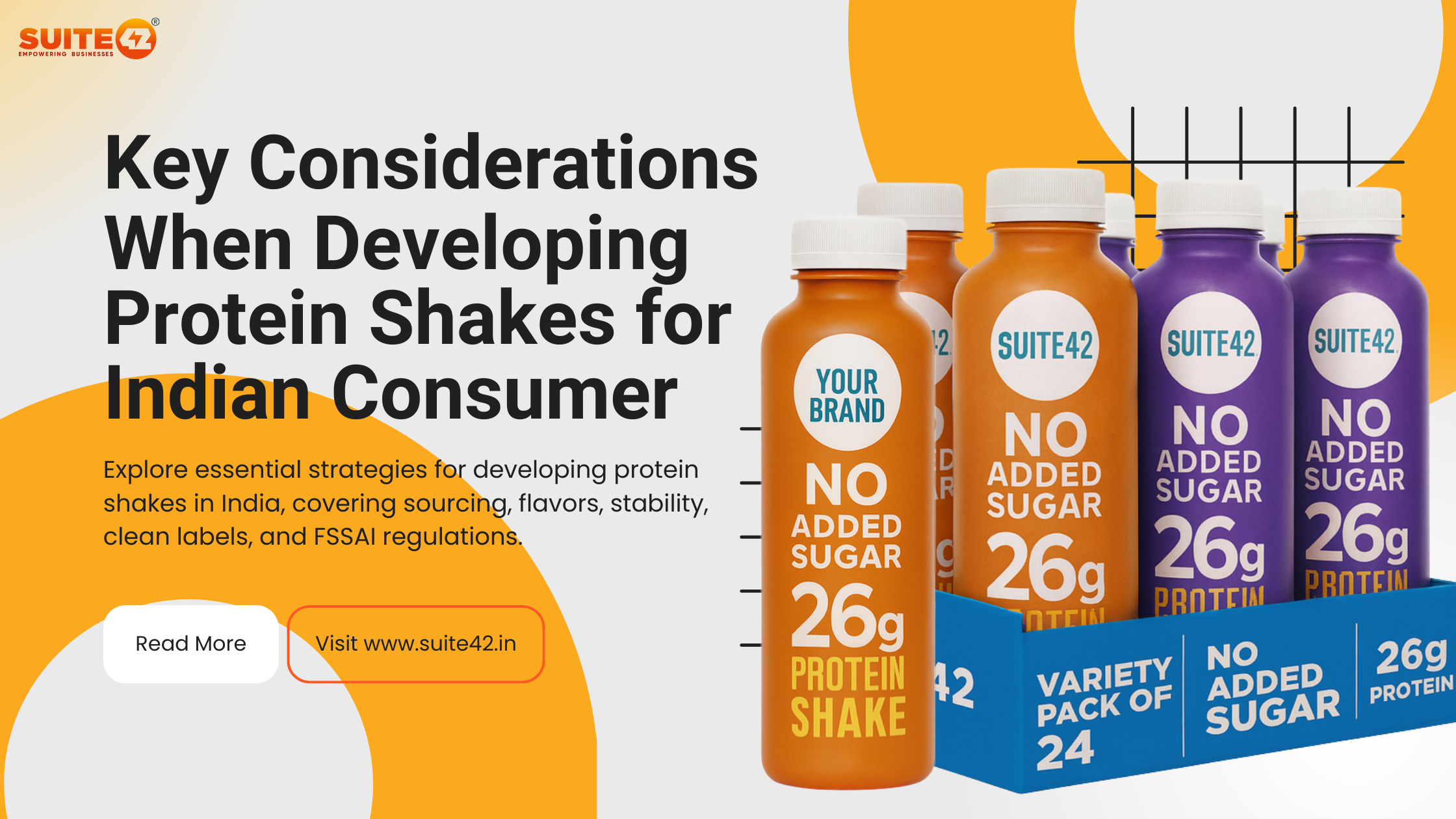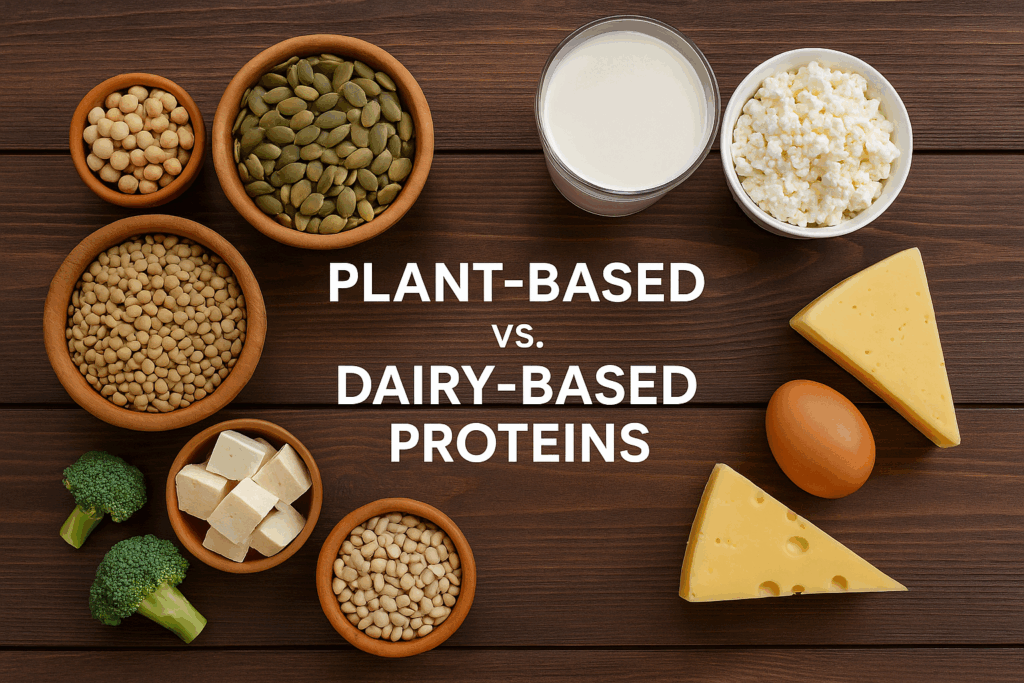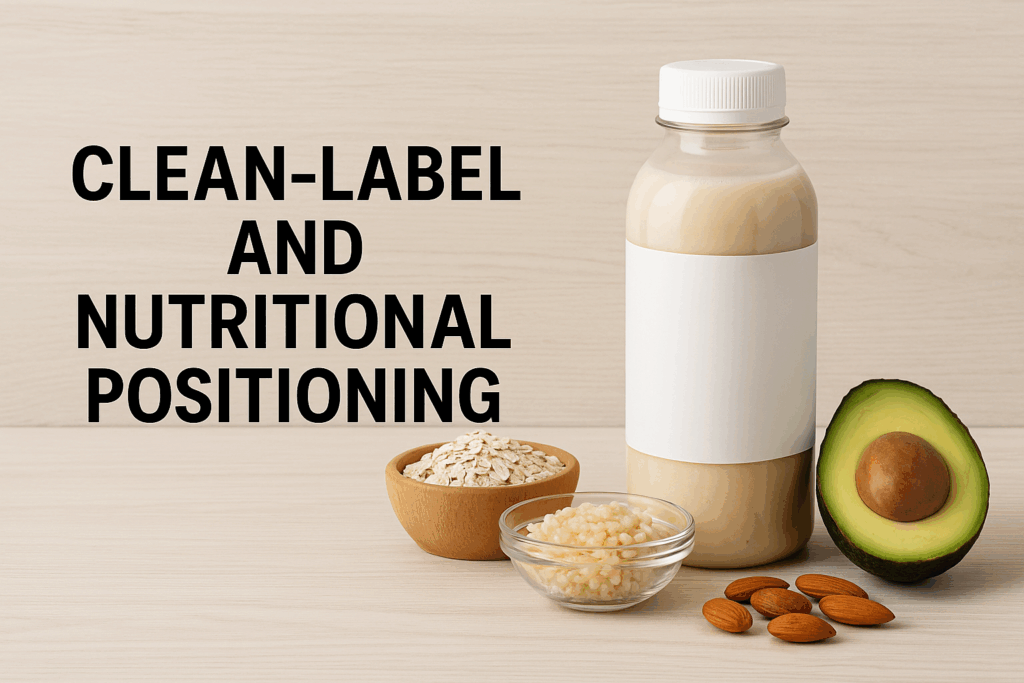
Key Considerations When Developing Protein Shakes for the Indian Consumer
Introduction
India’s functional beverage sector is witnessing robust growth, with protein shakes emerging as a prominent category favoured by health-conscious consumers which has led to significant rise in developing protein shakes by existing and new brands. While flavoured milks offer indulgent nutrition and meal replacement drinks address comprehensive dietary needs, protein shakes occupy a unique niche by delivering concentrated, performance-oriented nourishment.
Brands exploring for development of protein shakes for Indian markets must address diverse consumer expectations, ingredient constraints, and regulatory demands. Success in this segment depends on mastering nuanced formulation strategies that balance efficacy, taste, and stability.
Protein Sourcing and Types
Plant-based vs. Dairy-based Proteins
The foundation of any protein shake lies in its core ingredient: the protein source. In India, dairy protein sourcing – particularly whey protein – has traditionally dominated due to its high bioavailability and established efficacy in muscle recovery and weight management. Whey proteins, both isolate and concentrate, remain popular among fitness enthusiasts and athletes.

However, the rise of veganism, lactose intolerance awareness, and environmental concerns has fueled the demand for Vegan protein beverages in India. Plant-based proteins derived from peas, soy, brown rice, and hemp offer alternatives that cater to ethically and health-motivated consumers.
A report by Mintel (2023) indicates that 42% of Indian consumers are willing to try plant-based protein beverages if they match dairy-based products in taste and nutritional value. Brands must evaluate the sensory profiles, solubility, and amino acid completeness of different protein types to deliver compelling, consumer-approved options.
Importance of Protein Quality and Bioavailability
Regardless of the source, protein quality and bioavailability are critical metrics determining a shake’s functional value. Consumers seeking fitness-oriented nutrition prioritize digestibility and rapid absorption. Challenges often arise in maintaining consistency across batches, as raw material quality can fluctuate based on regional supply and agricultural practices.
Moreover, combining different protein sources to create complementary amino acid profiles can improve overall efficacy. This strategy, while technically demanding, enhances consumer trust and differentiates products in a crowded market. Careful supplier selection and rigorous quality control processes are essential components of developing protein shakes that consistently meet consumer expectations.
Flavor Profiles & Preferences of Indian Consumers
Popular Traditional Flavours
Taste remains a decisive factor in consumer acceptance of protein shakes. In the Indian context, classic flavors such as chocolate, vanilla, and strawberry continue to dominate the market. These familiar profiles evoke a sense of comfort and reliability, encouraging first-time users to adopt protein supplementation.
Coffee-flavored protein shakes have also gained popularity among young professionals, combining functional benefits with a stimulating twist. Regionally inspired flavors, like mango or kesar-pista, present untapped potential for differentiation, allowing brands to create culturally resonant products within the broader Protein shake formulation India landscape.
Experimental and Functional Flavours
Beyond traditional offerings, a segment of urban consumers actively seeks novel flavor experiences. Fusion concepts like chocolate-mint, matcha-latte, and turmeric-ginger are increasingly embraced by health-conscious individuals looking for functional benefits alongside taste.
Formulating these experimental flavors demands precise balancing of natural extracts, sweeteners, and masking agents to mitigate bitterness or off-notes inherent in certain protein sources. Advanced flavor encapsulation techniques help maintain stability and enhance the sensory experience, ultimately strengthening brand appeal among adventurous consumers.
An article that might interest you: Protein Shakes: The Next Big Wave in India’s Functional Dairy Market
Shelf Stability and Preservation Techniques to Consider while for Developing Protein Shakes
Factors Influencing Stability
Protein shakes present unique formulation challenges due to protein denaturation, sedimentation, and microbial vulnerability. Factors such as pH, ionic strength, and the interaction of proteins with added nutrients directly influence beverage stability and shelf life.
Dairy-based shakes often face higher microbial risks, necessitating stringent preservation methods. Plant-based variants can pose different stability issues, such as phase separation and grit formation, which require customized solutions.
Modern Preservation Methods
To ensure extended shelf-life while maintaining nutritional integrity, manufacturers deploy techniques such as ultra-high temperature (UHT) treatment and aseptic packaging. Natural stabilizers, including pectin and guar gum, play critical roles in improving mouthfeel and preventing sedimentation.
Incorporating antioxidants and natural preservatives, like rosemary extract, further supports microbial control without compromising clean-label claims. According to Euromonitor (2023), 57% of Indian consumers prefer functional beverages with minimal artificial preservatives, reinforcing the importance of natural preservation approaches in developing protein shakes.
Regulatory Considerations for Labelling
FSSAI Guidelines and Compliance

Navigating India’s regulatory landscape is critical when developing protein shakes for local markets. The Food Safety and Standards Authority of India (FSSAI) prescribes stringent guidelines on permissible ingredients, nutrient claims, and labeling practices.
Brands must ensure that all health and nutrition claims, such as “high protein,” “low sugar,” or “fortified with vitamins,” are substantiated and comply with FSSAI’s established nutrient thresholds. Misleading or unverified claims can attract penalties, product recalls, and severe reputational damage.
Transparent labeling, including detailed nutritional information and ingredient breakdowns, is not merely a regulatory requirement but also a consumer expectation. According to Nielsen (2022), 69% of Indian consumers consider detailed nutritional labels an essential factor influencing their purchase decisions.
Check out our Categories: Functional Beverages – Protein Milkshakes
Allergen Declarations and Clean-label Demands
Given the growing prevalence of lactose intolerance and nut allergies, allergen declarations are vital for consumer safety and trust. Clearly marking potential allergens and cross-contamination risks ensures brands meet legal standards and build credibility.
Parallel to allergen transparency, the demand for clean-label protein shakes is intensifying. Consumers increasingly avoid artificial colors, synthetic emulsifiers, and excessive sweeteners. Positioning protein shakes as “natural,” “additive-free,” or “no artificial flavors” resonates strongly with health-conscious audiences.
A study by Mintel (2023) highlighted that 62% of urban consumers are more inclined to purchase beverages marketed with explicit clean-label claims, underlining its strategic importance.
Clean-label and Nutritional Positioning for Developing Protein Shakes

Minimalist Formulations and Ingredient Simplicity for Developing Protein Shakes
Embracing minimalist formulations allows brands to align with consumer preferences for transparency and simplicity. Reducing the number of ingredients and emphasizing naturally sourced components elevate perceived product purity and trustworthiness.
This approach, central to developing protein shakes, involves replacing synthetic stabilizers with natural alternatives, using mild natural sweeteners, and avoiding genetically modified organisms (GMOs). Clean-label positioning not only enhances brand image but also supports premium pricing strategies.
Fortification and Added Functional Benefits
Beyond basic protein content, contemporary consumers increasingly seek added functional benefits. Fortifying shakes with vitamins (A, D, B-complex), minerals (calcium, iron, magnesium), and bioactive compounds (adaptogens, probiotics, digestive enzymes) creates differentiation and addresses holistic wellness needs.
Including functional claims like “supports immunity,” “aids digestion,” or “enhances recovery” further strengthens market positioning. However, all such claims must be supported by robust scientific evidence and comply with FSSAI’s fortification standards to avoid regulatory complications.
Conclusion
The Indian protein shake market holds immense potential, driven by a convergence of rising fitness aspirations, evolving dietary habits, and increasing awareness around preventive health. However, succeeding in this dynamic category requires more than simply adding protein to a beverage base.
Brands invested in developing protein shakes for Indian consumers must focus on sourcing high-quality proteins, whether dairy-based or plant-derived, crafted with attention to bioavailability and efficacy. Understanding regional and cultural flavor preferences, along with adventurous trends, empowers brands to connect authentically with diverse audiences.
Shelf stability, regulatory compliance, and allergen transparency are critical pillars supporting both product safety and consumer trust. Coupled with minimalist, clean-label formulations and intelligent fortification, these elements help transform a standard protein drink into a trusted nutritional companion.

For companies seeking to stand out in India’s rapidly expanding functional beverage sector, embracing comprehensive, consumer-centric formulation strategies is essential. Collaborating with expert development and manufacturing partners accelerates the journey from concept to market while ensuring quality, compliance, and brand differentiation.
Brands ready to champion innovation and build lasting consumer relationships will find tremendous opportunities in creating protein shakes that truly resonate with the Indian market’s evolving tastes and health priorities. Contact us today to get started with developing protein shakes and scaling its manufacturing.






Leave a Reply